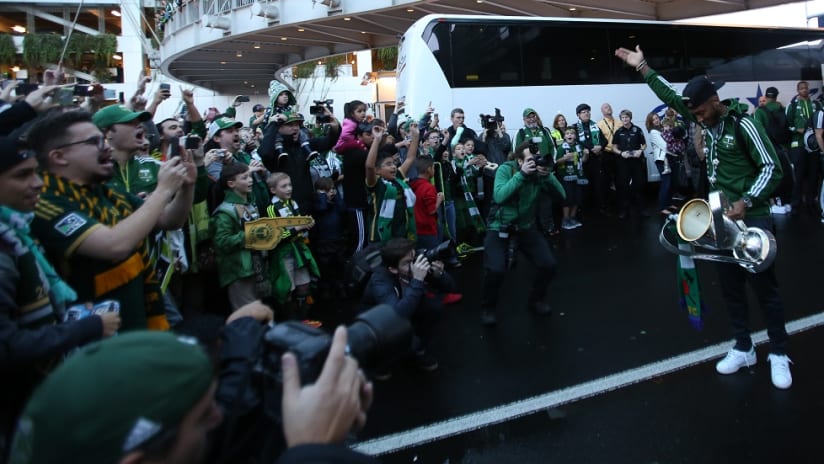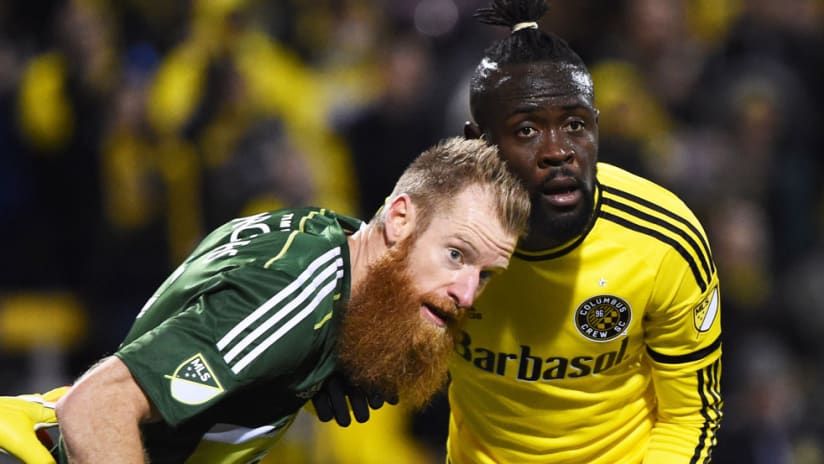COLUMBUS, Ohio – Blink, and you’ll miss the fastest goal in MLS Cup history.
That’s what happened at MAPFRE Stadium on Sunday afternoon, when the Portland Timbers' Diego Valeri scored 27 seconds into the 2015 title game against Columbus Crew SC, as many fans were just taking their seats.
The goal appeared to be somewhat fortuitous, but it was borne of an impressive display of effort from Valeri to jump-start Portland's 2-1 win.
The Argentine playmaker – not known for his defense, as head coach Caleb Porter duly noted in his postgame press conference – looked like a man possessed as he barreled down on Columbus goalkeeper Steve Clark, who was attempting to play the ball out of his own area.
After taking a touch across his goal, Clark attempted to clear the ball, but by then it was too late. Valeri slid in to block the clearance, which ricocheted into the Columbus goal.
The Timbers may have benefited from a kind bounce when the ball rolled in, but the goal itself was the result of a specific game plan.
“It’s ironic, isn’t it? They were able to score [in the Eastern Conference Championship] against the New York Red Bulls 10 seconds into the game. We wanted to flip the script on them,” Timbers defender Nat Borchers remarked to reporters amid the team’s post-game celebrations. “We wanted to put them under pressure. We knew they liked to play out of the back. We knew they would be a little bit tense – it’s a cup game – they’d be a little bit tense with their passing, and what a great way to start the game for us.”
The party didn’t end there for the Timbers and their traveling support. By the seventh minute, Portland were up 2-0 after a Rodney Wallace header. The goal, which stood as the eventual winner, arrived in controversial circumstances, but ultimately came from a turnover in Columbus’ half, again pointing to a specific game plan to take advantage of Crew SC’s tendencies.
“We knew that they take risks to play. That’s their way,” Valeri said of the team’s hot start in the post-game press conference. “We knew that the aggressiveness in the first 20 minutes from us had to be there. We tried to press them, because most of the situations that they create come from their back line. So we tried to press to be aggressive and it was strange, but it was about the aggressiveness and the pressure that we put on their back line.”
Borchers did admit he was afraid the team had scored too early, noting that early goals often allow opposition plenty of time to get back into the game. But a strong defensive showing – which saw the Timbers allow just one shot on goal – ensured that Columbus would live to rue that first-minute play.
“Soccer’s one of those sports where, if you miss a 10-second play, it could be the difference in the game, in the 90 minutes,” Borchers said. “In the first 15-20 minutes you can win the game. We thought maybe we can win the game in the first 15-20 minutes, and we did.”












